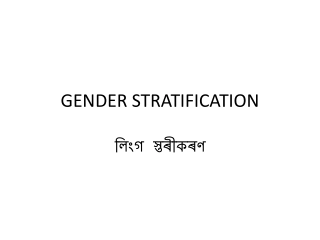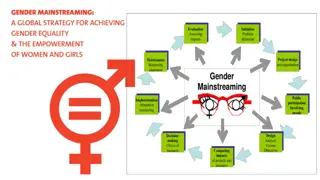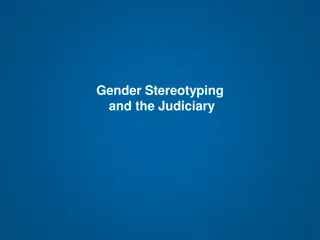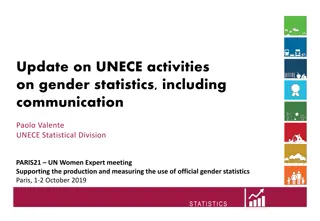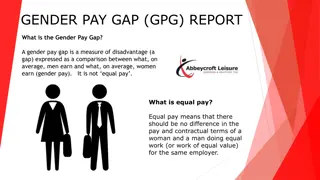More on Gender
Gender rules in Spanish nouns is crucial for language learners. Nouns ending in -a, -ción, -dad are usually feminine, while words of Greek origin ending in -ma are typically masculine. Recognizing these patterns can help in forming correct sentences and agreements in Spanish.
Download Presentation

Please find below an Image/Link to download the presentation.
The content on the website is provided AS IS for your information and personal use only. It may not be sold, licensed, or shared on other websites without obtaining consent from the author.If you encounter any issues during the download, it is possible that the publisher has removed the file from their server.
You are allowed to download the files provided on this website for personal or commercial use, subject to the condition that they are used lawfully. All files are the property of their respective owners.
The content on the website is provided AS IS for your information and personal use only. It may not be sold, licensed, or shared on other websites without obtaining consent from the author.
E N D
Presentation Transcript
Always Feminine In Spanish: Any word which ends in i n(si n or ci n) is always feminine: La situaci n, La lecci n , La televisi n, La naci n. These are usually cognates. However, Spanish uses ci n instead of tion . When these are made plural the accent is dropped: Las naciones
Nouns which end in tad and dad are also always feminine La ciudad, la universidad, la realidad, la libertad. These are also cognates which correspond to English words ending in - ity (exceptions: christianity and homosexuality)
Always masculine Words of Greek origin that end in ma are masculine (exception: La rima). El programa, el problema, el sistema, el tema, el idioma, el clima, el poema. Most of these are cognates, though some only vaguely (el clima=climate, el tema= theme)


